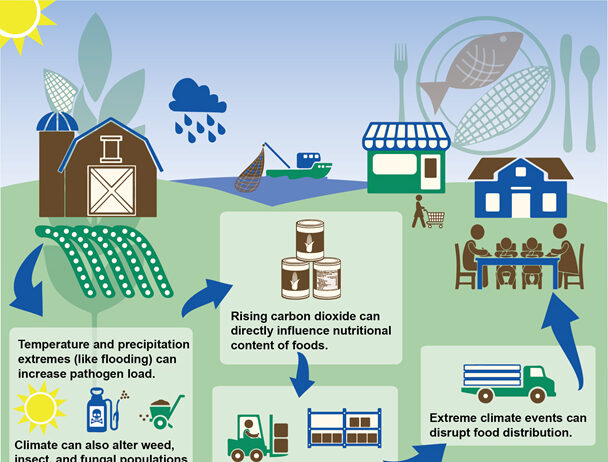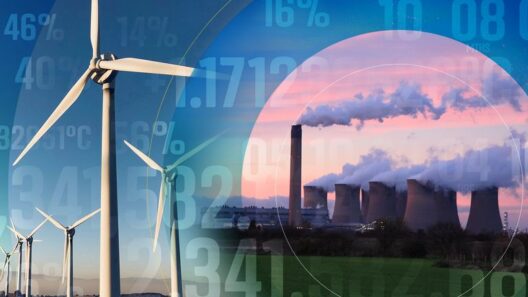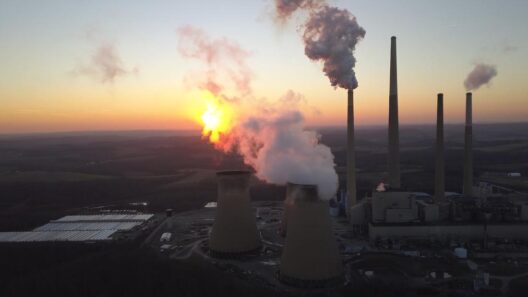In the grand theater of existence, Earth is the protagonist facing an existential crisis, a quintessential tale of survival as the temperature rises. Global warming is not merely a scientific term; it is a harbinger of an unfolding calamity, a relentless specter that haunts our natural realm, wreaking havoc on both human and ecological systems. As we continue to release copious amounts of greenhouse gases into the atmosphere, the delicate fabric of our planet begins to unravel, akin to the fraying threads of a tapestry woven with care over millennia.
At its core, global warming is an alarming acceleration in the Earth’s average temperature, fueled primarily by humanity’s insatiable appetite for fossil fuels, deforestation, and industrial practices. The consequences are far-reaching: extreme weather events morph into regular occurrences, the ice caps melt with tragic urgency, and nutrient cycles deteriorate, leading to ecological imbalance. Each facet of this complex interplay contributes to a system in peril, reflecting the dire necessity of immediate action.
One of the most poignant manifestations of global warming is erratic weather patterns. Picture the once-reliable rhythms of nature, as if a musician’s baton has lost its tempo; storms surge with unprecedented ferocity, droughts beckon parched landscapes, and heatwaves scorch the earth, where lush greenery once thrived. Hurricanes, intensified by warmer ocean waters, emerge as monstrous forces that obliterate communities and ecosystems alike. Nature’s anger is palpable, shifted into overdrive, reminding us that she is not to be trifled with.
Moreover, the inexorable melting of polar ice caps is akin to the tears of a sorrowful planet. As glaciers and ice shelves succumb to rising temperatures, sea levels rise, threatening coastal cities and low-lying islands with inundation. The reverberations of this phenomenon reach far beyond geography — they disrupt habitats, forcing marine life to adapt or perish. Coral reefs, often termed the rainforests of the sea, exhibit bleaching on a tragic scale, their vibrant ecosystems at risk of collapse, similar to a once-resplendent stage darkened after the final act.
The intricate web of life, too, suffers immensely under the pressure of climate change. As ecosystems disintegrate, species face an existential struggle to adapt, migrate, or linger in silence to extinction. The extinction of even a single species can have catastrophic cascading effects on an entire ecosystem. A fallen domino can lead to the dismantling of a robust ecosystem, highlighting the interconnectedness of all living things. With each species that fades, the biodiversity that sustains us diminishes, leaving behind a quieter, less resilient world.
Humans, as the stewards of this planet, are not passive observers in this debacle; we are intricately tied to these outcomes. Health crises burgeon in the wake of climate change, exhibiting a direct correlation between rising temperatures and physical well-being. Heat-related illnesses surge during oppressive heatwaves, while vector-borne diseases thrive as conditions become more hospitable. The increase in allergens and pollutants exacerbates respiratory ailments, signaling a broader public health emergency. It is a cruel irony that the same advancements that granted us comfort also sow the seeds of our disquiet.
Socioeconomic ramifications unfold amid this climatic upheaval, creating a veritable chasm between the privileged and the marginalized. Vulnerable populations, often least responsible for carbon emissions, bear the brunt of environmental degradation. Food security dwindles as changing weather patterns disrupt agricultural productivity, leading to famine and displacement. This grim reality manifests as climate refugees, individuals forced to abandon their homes in search of habitable land. They traverse treacherous landscapes, embodying the toll exacted by a planet in distress.
Amid this disheartening reality, the narrative of global warming is not solely one of despair; it is replete with potential for resilience and hope. Technological innovations and renewable energy solutions provide a pathway to mitigate the dire predictions. Solar panels glisten like a beacon of hope, wind turbines spin with grace, and sustainable practices flourish, heralding the dawn of an eco-conscious era. The transition to a low-carbon economy may well serve as the antidote to our current malaise, infusing life into depleted ecosystems while invigorating local economies.
Community engagement and activism are paramount in this transformation, fostering a collective consciousness that transcends individual interests. Planting trees, advocating for policy changes, and educating future generations form the bedrock of a sustainable movement. As individuals unite to confront climate change, they collectively embody the spirit of resilience, transforming the narrative from one of fatalism to proactive stewardship.
The Earth’s unraveling is not an inevitable fate; rather, it is a clarion call to humanity to reflect on its actions and make amends with nature. The metaphoric threads of the tapestry woven over the eons can still be rewoven, but only if we embrace our responsibilities as caretakers. The choices made today will echo throughout time, reverberating through generations yet unborn.
In conclusion, the paradigm of global warming casts a long shadow over the future of our planet. It demands immediate and concerted action from every corner of society. Will we rise to the occasion, warriors for the earth’s beauty and biodiversity? Or will we linger in complacency, allowing a fragile Earth to spiral further into despair? The answer resides in our hands, and the time for decisive action is now.








